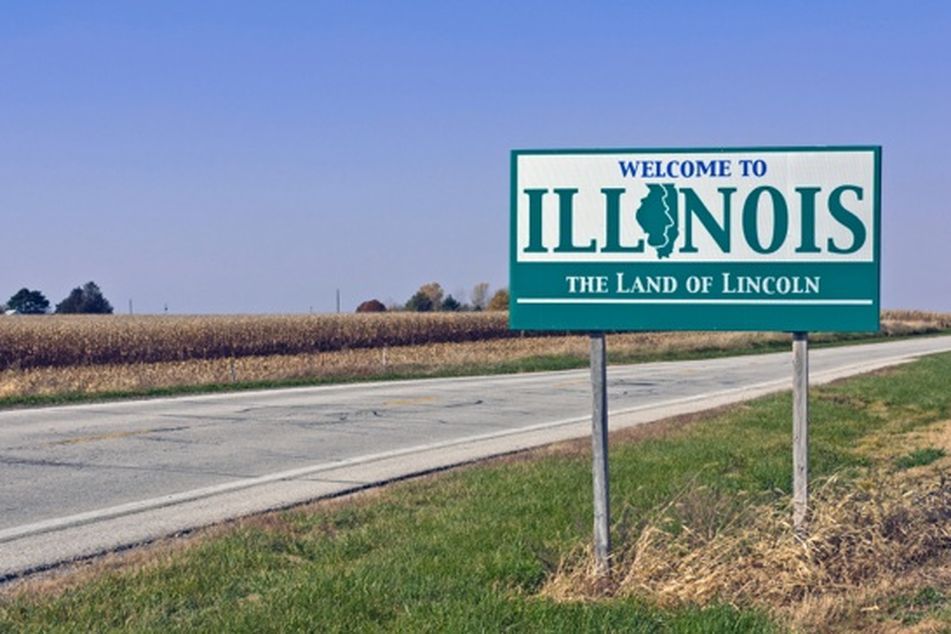Forget California: Meet the new poster-child for fiscal irresponsibility

Meet America's new poster-child for fiscal irresponsibility
Three brawling Illinois Democrats are presiding over a fiscal muck that has made the state the new archetype of dysfunction as longtime champion California last week projected its first surplus in a decade.
Years of indecision, gridlock and mismanagement have produced a $97 billion pension-funding deficit and more than $9 billion in unpaid bills, saddling Illinois with the nation’s lowest rating from Moody’s Investors Service. As a result, taxpayers are paying more to borrow, and the state’s ability to provide essential services is withering as annual retirement obligations devour more money.
Illinois reached this stalemate without the excuse of partisanship, which has hamstrung efforts in Washington to cut the federal debt. The state Capitol is controlled by Democrats – -Governor Pat Quinn, House Speaker Michael Madigan and Senate President John Cullerton. They’re the fighting Irish, three Chicago politicians who can’t settle on how to pull the state from a pension hole that gets $17 million deeper each day.
“Madigan and Cullerton do not agree on the fundamental framework of pension reform, and Quinn is unable to bring them together,” said Senate Republican Leader Christine Radogno. “There is a bit of a power struggle going on.”
Taxpayers are bearing the burden of inaction every time Illinois borrows.
Hot Frog
Investors demand a higher yield penalty on the debt of Illinois and its localities than those in California, according to data compiled by Bloomberg. The premium increased this week to the highest in a month after Illinois failed to overhaul its pensions.
Even higher costs may be ahead. Illinois faces the possibility of another credit downgrade from the three major ratings agencies, which all have assigned it a negative outlook. Moody’s rates the state A2, sixth-highest and worse than any other state.
“Illinois is the proverbial frog in boiling water, slowly being boiled alive,” said Laurence Msall, president of the Civic Federation, a Chicago-based nonprofit group that tracks government finance.
California Governor Jerry Brown began the cleanup of his state’s fiscal mess using a voter-approved increase in the sales tax and higher levies on the wealthy. Illinois played the taxation card two years ago, with temporary increases in the personal and corporate rates that produced $7 billion annually. Yet the general-revenue fund shortfall was $9.3 billion at the end of June.
Hostage Economy
As the end of Illinois’ legislative session approached last week, Quinn tried to prod lawmakers into acting on two bills. A House proposal would have raised employee retirement contributions and delayed annual cost-of-living increases. A Senate-passed measure would have given workers a choice between state-paid retiree health care with smaller inflation adjustments, or the current pension without health care.
The governor said he would support anything that would eliminate the pension liability within 30 years.
“We cannot allow our state economy, the Illinois economy, to be held hostage by political timidity,” Quinn said during a Jan. 8 press conference. “If we don’t address this issue promptly, our state will continue to suffer, grievously.”
Nothing happened.
Lonely Death
The next day, Madigan, who has been speaker of the House for 28 of the past 30 years, adjourned the chamber, effectively killing both bills without a vote. The support from either party wasn’t there to pass it, Madigan spokesman Steve Brown said, drawing a sharp response from Cullerton.
“The problem is the House didn’t even call the bill that they’d said was a bipartisan bill that would save all this money — didn’t even call it,” Cullerton said during a news conference.
The key to breaking the logjam, members of both parties say, is Madigan, 70, a South Side lawyer whose power base is near Midway Airport, on the second floor of the Balzekas Museum of Lithuanian Culture. While it’s easy to miss the letter-sized office sign attached to the window with plastic suction cups, there’s no understating Madigan’s influence.
He has held his seat since he was first elected in 1970. Even as his neighborhood has changed from Irish working class to predominantly black and Hispanic, he won re-election in November with 77 percent of the vote. He’s chairman of the Democratic Party of Illinois, controlling how campaign cash is allotted. His daughter, Lisa Madigan, is the state’s attorney general and the first name mentioned in speculation about the 2014 governor’s race — even if it means challenging Quinn.
Action Man
Madigan used his muscle in 2011 to engineer the largest income-tax increase in state history, entirely with Democratic votes. He started impeachment proceedings against then-Governor Rod Blagojevich, who’s now in federal prison. Madigan can make things happen. Or not.
His longtime aide, Brown, dismissed any comparison between corralling votes for the tax increase and for an overhaul of the state’s pension funds.
“The issues are vastly different and it’s infinitely harder to find the votes,” Brown said in an interview. Madigan declined to be interviewed.
“The mythology that Mike Madigan can just wiggle his nose and the Democratic majority jumps up for the issue is not well- grounded to begin with, especially not on this topic,” Brown said, adding that Republicans must deliver some votes.
Killing Field
Madigan’s own district reflects the consequences of the state’s morass. Holy Cross Hospital, a five-minute drive from his district office, is among the thousands of vendors waiting to be paid. It’s owed $2.3 million, according to the comptroller’s office.
The failure also affects the ability of Illinois’s biggest city to keep its 2.7 million people safe. Chicago reported 506 homicides in 2012, its highest in four years.
Killings in the police district that includes Madigan’s neighborhood soared 39 percent last year, driven by gang activity, said 8th District Commander David McNaughton. The city’s total increase was 16 percent.
It’s “not just simply drug trade but fights over territory, girls and YouTube and Facebook messages,” McNaughton said.
Debt Generation
When Mayor Rahm Emanuel testified in May about pensions, he told lawmakers that he and other mayors were faced with impossible decisions.
“Our taxpayers can’t afford to choose between pensions and police officers, pensions or paved streets or pensions and public health,” Emanuel said. “Without pension reform, we’ll be forced to mortgage our children’s future to pay for our past.”
The crisis has been decades in the making, with Republicans and Democrats each contributing to the problem.
“It’s confounded Illinois legislatures and governors for 70 years,” Quinn said last week. “There have been 12 governors, 13 speakers of the House and 12 presidents of the Senate that have grappled with this issue.”
Now it’s in the hands of veto-proof Democratic blocs in the state House and Senate.
“We now control both of the chambers with supermajorities,” said John Sullivan, Cullerton’s assistant majority leader. “So is the pressure on? Yeah, no question about it.”
–Bloomberg News–
Learn more about reprints and licensing for this article.






